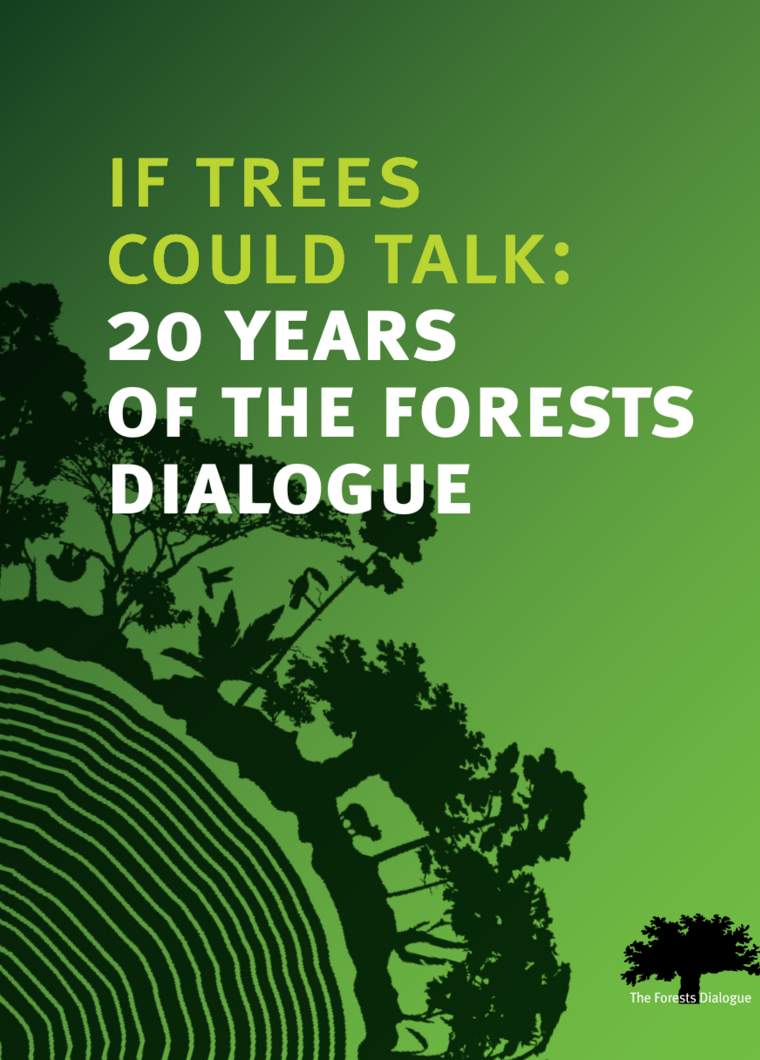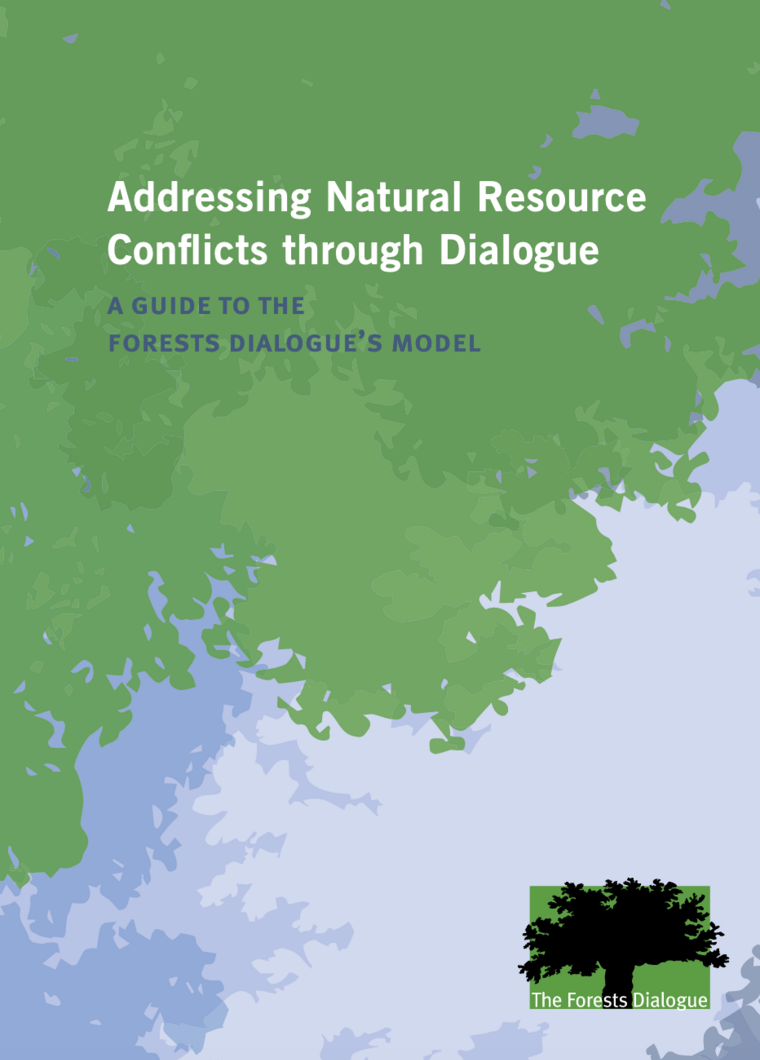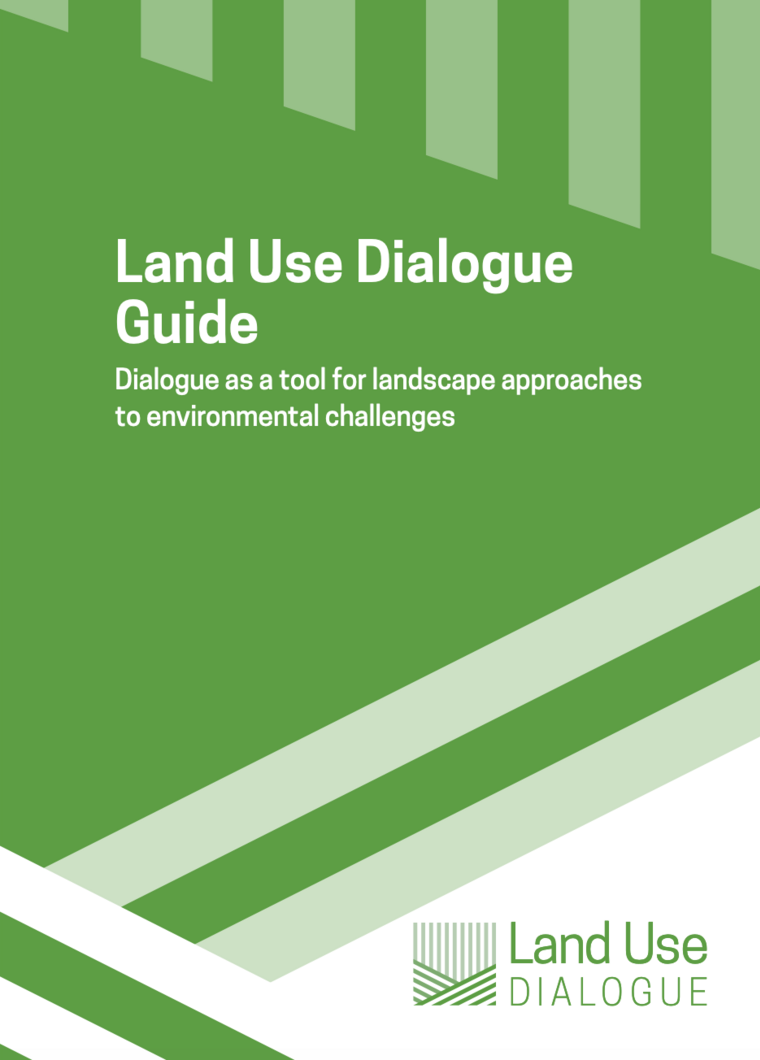Publications
The Forests Dialogue produces and publishes a variety of documents - maintained in a comprehensive library below. The majority of TFD publications are developed through TFD’s initiative process, including the following major publication types. In the lead-up to an initiative, a foundational Scoping Paper is produced to provide context for the scoping dialogue. Background Reports that provide stakeholders with relevant location-specific content are created for each subsequent dialogue following the scoping dialogue. At the conclusion of a dialogue, the co-chairs, with help from the TFD secretariat, produce a Co-chairs’ Summary Report that captures the key perspectives, discussions, agreements, and next steps from the dialogue. At the conclusion of an initiative, the Advisory Group, co-chairs, select leaders, and the Secretariat synthesize the initiative’s conclusions into a TFD Review. Additionally, Country Reports that aggregate learnings from a number of country-specific dialogues are typically produced for initiatives that involve numerous country-level dialogues, including TFD’s REDD+ dialogues. TFD also facilitates the production of guides and policy recommendations including a guide to the TFD process, the Land Use Dialogue methodology. These are geared towards practitioners or policy makers and contain actionable steps that stakeholders can take to enact change based on learnings gathered through the TFD process.
Navigate TFD’s extensive publication database using the search function below, or visit specific dialogue or initiative pages to see their associated publications.
Illegal logging in Indonesia, Brazil, the Congo Basin, Papua New Guinea, Russia, Cambodia
and elsewhere results in social conflict and violence, costs governments billions of dollars in
lost taxes, and causes great harm to forests. A significant amount of this illegally cut wood
enters global trade depressing the prices of wood products and presenting unfair competition
On October 19-21, 2004, The Forests Dialogue (TFD) convened a dialogue in Maidenhead, England “to foster interactive dialogue on the creation of market conditions that encourage informed choices about the acceptability of the growing number of forest certification systems in the marketplace.”
The issue of forest certification has been a particularly compelling one for TFD since its inception
because forest certification has generated significant discussion and controversy over the last
decade. Currently, the debate is focused on how to assess which of the existing schemes is
From October 9 to October 11, 2003, thirty participants met in Santa Cruz
de Cabrália, Brazil to discuss issues related to forestry and biodiversity conversation.
This meeting was convened by The Forests Dialogue (TFD), an
on-going international, multi-stakeholder dialogue process focused on forest
Convened by The Forests Dialogue, thirty participants met in Brazil to discuss issues related to forestry and biodiversity conversation. The participants represented environmental groups and the forest products industry, as well as representatives from landowner groups and academia.
Most stakeholders would agree that the conservation of biodiversity in forested
systems, wherever possible, is a good thing and something that we should all strive to achieve.
Beyond this, there may be little consensus or agreement on this issue. Most stakeholders have
their own definitions and preferred means to achieve biodiversity conservation. The conservation
On October 16-18 2002, The Forests Dialogue (TFD) convened a meeting in Geneva, Switzerland on forest certification (hereafter referred to as the Geneva Dialogue).To our knowledge this was the first time such a broad, international cross-section of forest certification leadership and advocacy met for informal discussion to achieve the following objectives:




